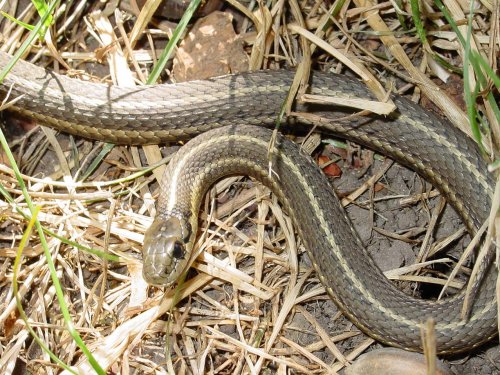sandrachameleon
Chameleon Enthusiast
So I was doing some gardening today, and unintentionally unearthed a small nest of tiny snakes, presumbably preparing to hybernate. I carefully moved them to a quiet sheltered corner amongst some leaves and bark and old sod near my compost bins. Afterwards, I wondered if I had just given up a feeder source. These were very small garder smakes, which are not poisonous or large even when adult. Most were no thicker than superworms, and perhaps 3 inches long. Although it was a mild day (12c) the snakes were fairly slow. I could easily have kept them chilled and offered them up as feeders, had it occured to me in time. I'll probably have the chance again in future, since there is a wilderness area at the back of my garden and plenty of snakes in the summer - undoubtedly there are a few snake nursaries nearby. I like snakes, and the babies are adorable, but still... maybe baby snakes are a good meal for chameleons? I like to offer my chameleons as much variety as possible, which is more difficult Fall and Winter.
thoughts anyone?
thoughts anyone?





